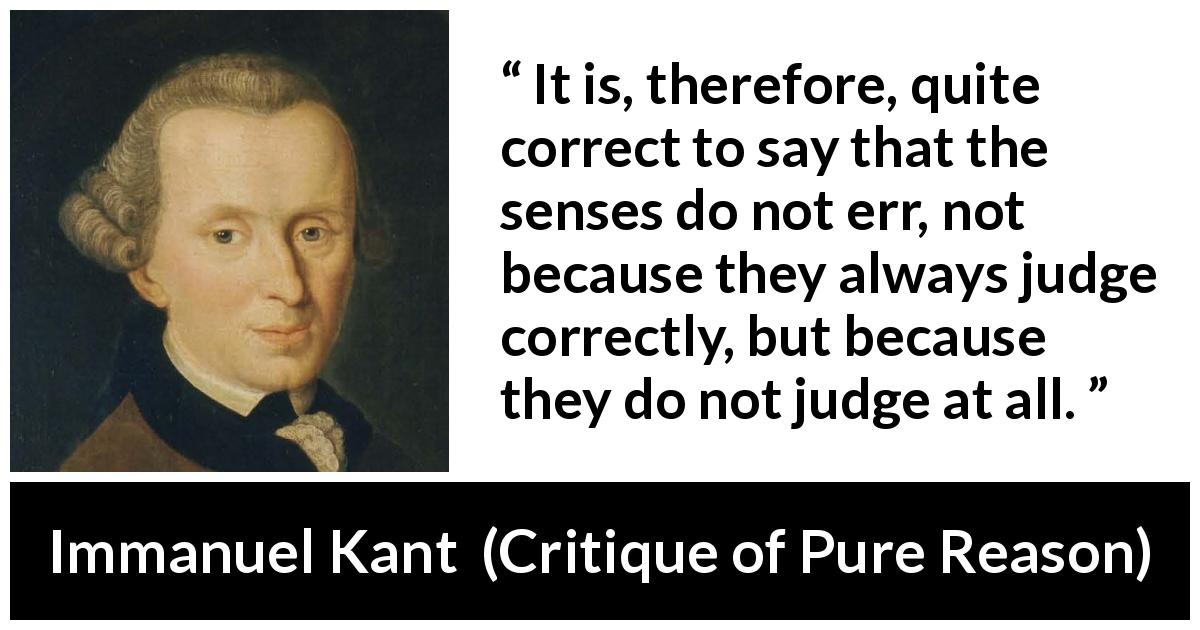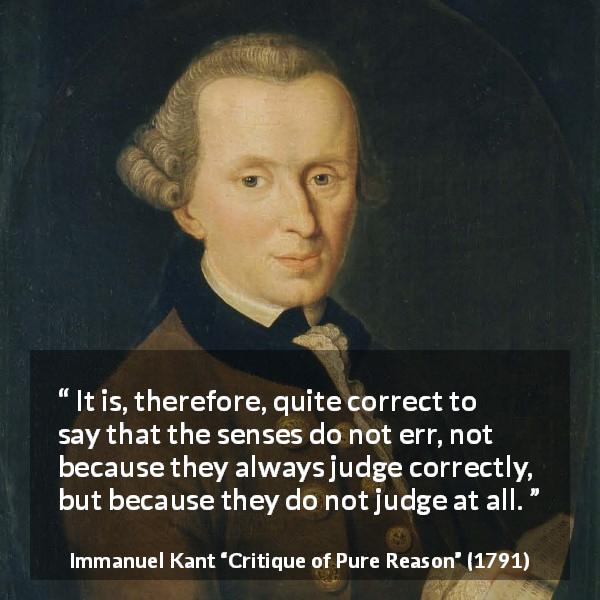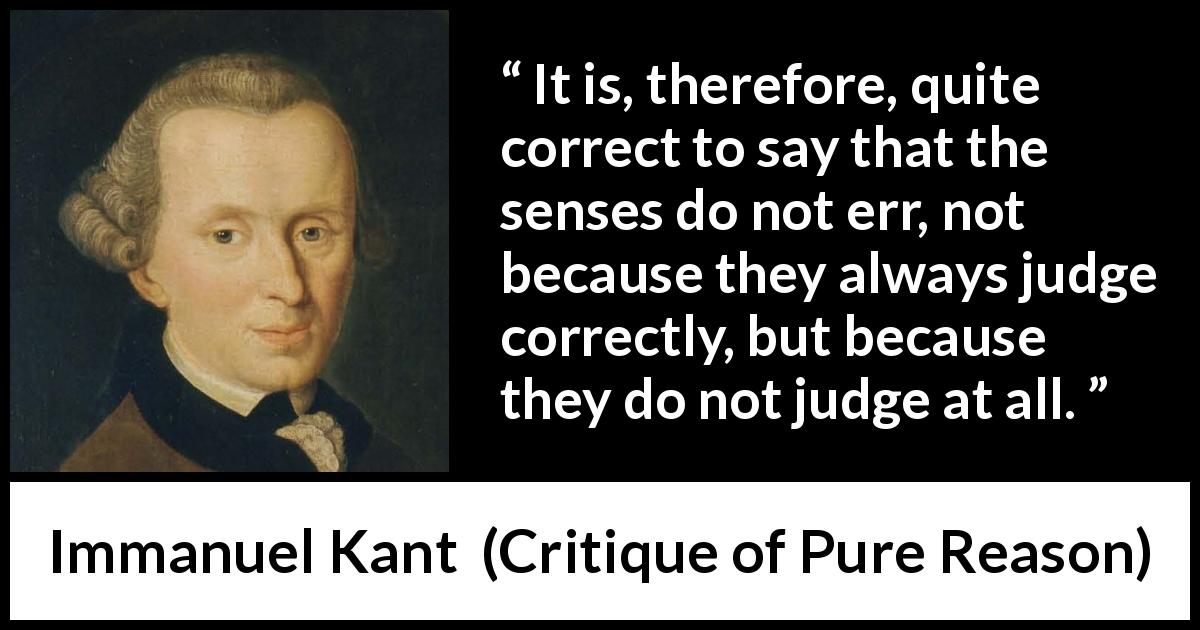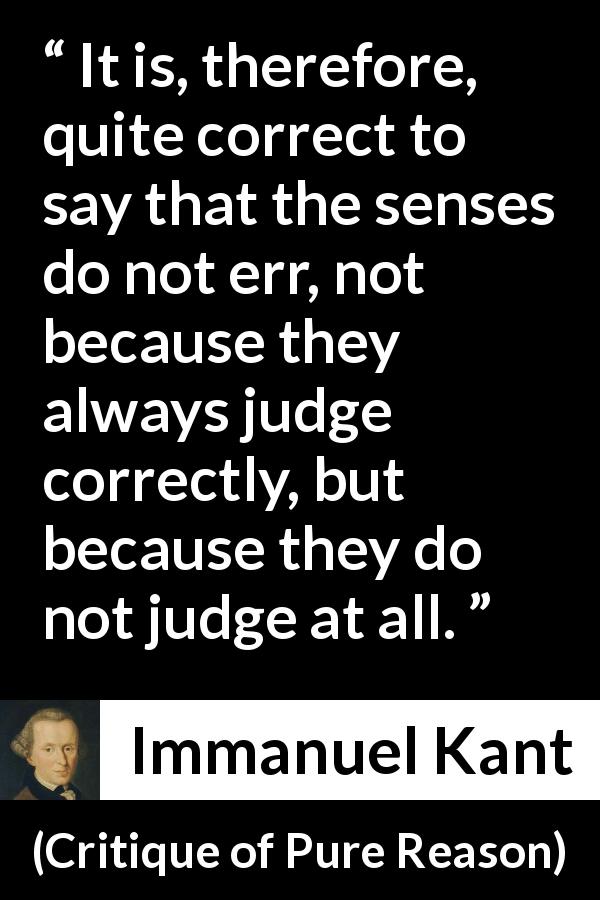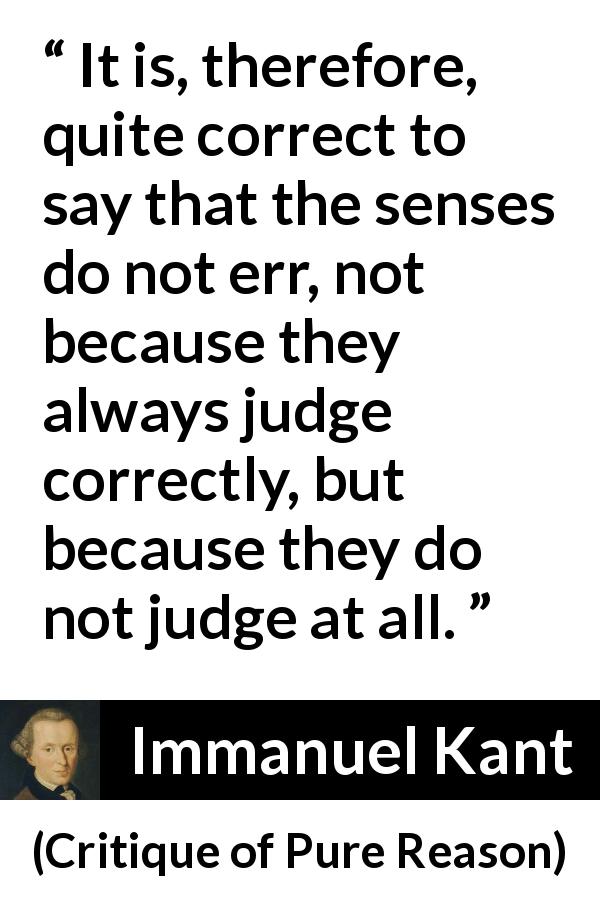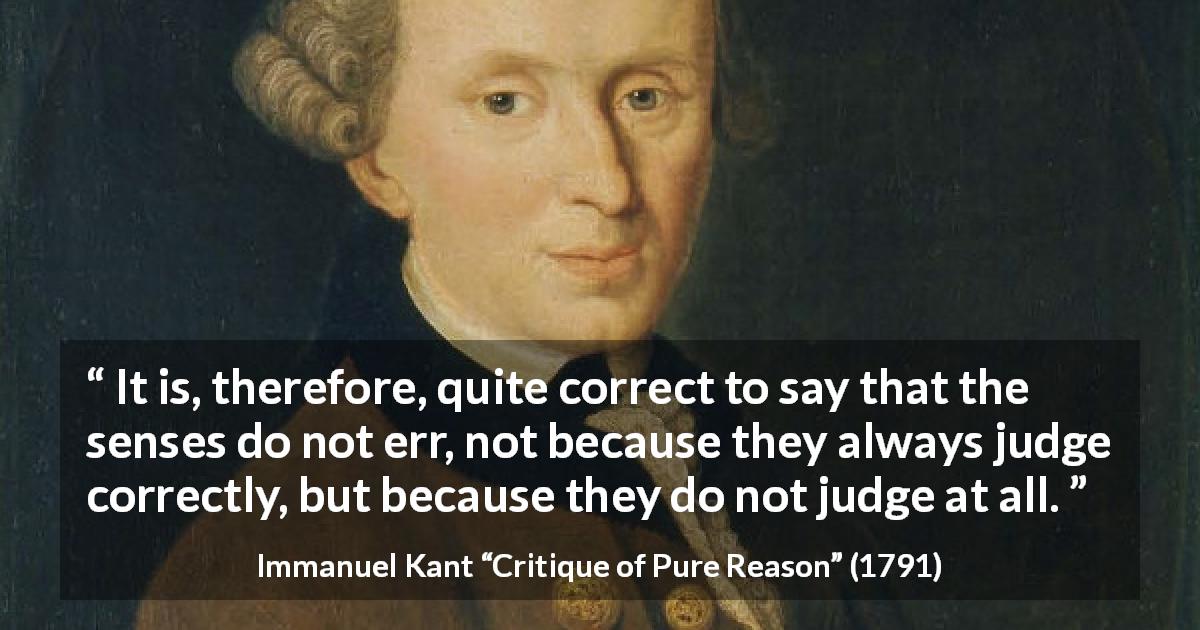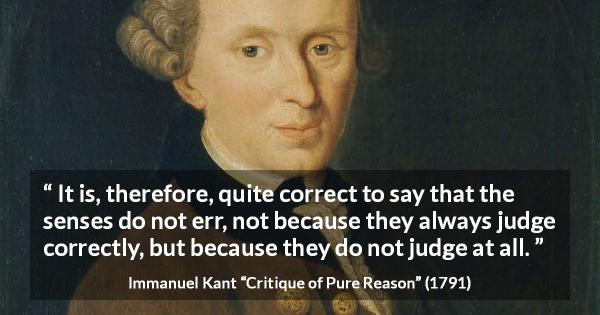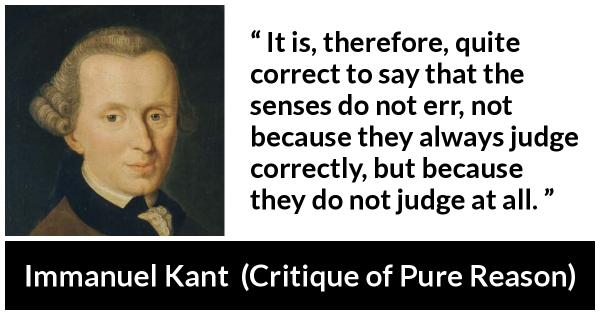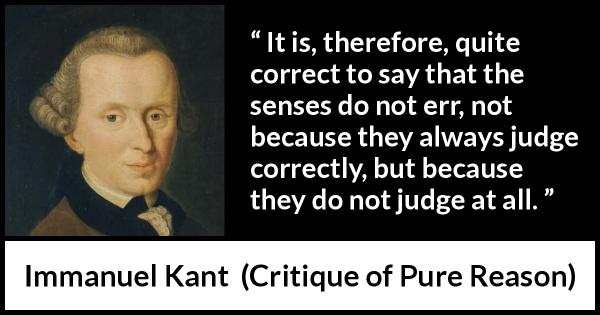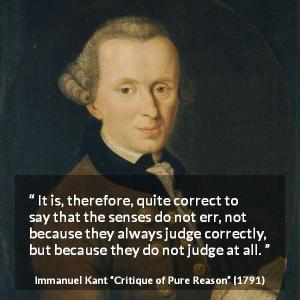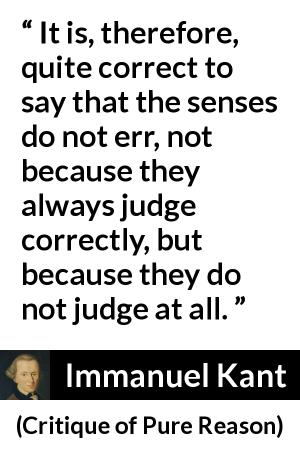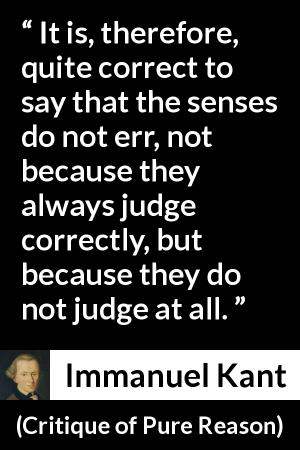“ It is, therefore, quite correct to say that the senses do not err, not because they always judge correctly, but because they do not judge at all. ”
Immanuel Kant, Critique of Pure Reason (1791). copy citation
| Author | Immanuel Kant |
|---|---|
| Source | Critique of Pure Reason |
| Topic | senses judgement error |
| Date | 1791 |
| Language | English |
| Reference | |
| Note | Translated by J. M. D. Meiklejohn |
| Weblink | http://www.gutenberg.org/files/4280/4280-h/4280-h.htm |
Context
“Still less must phenomenon and appearance be held to be identical. For truth or illusory appearance does not reside in the object, in so far as it is intuited, but in the judgement upon the object, in so far as it is thought. It is, therefore, quite correct to say that the senses do not err, not because they always judge correctly, but because they do not judge at all. Hence truth and error, consequently also, illusory appearance as the cause of error, are only to be found in a judgement, that is, in the relation of an object to our understanding. In a cognition which completely harmonizes with the laws of the understanding, no error can exist.”
source
